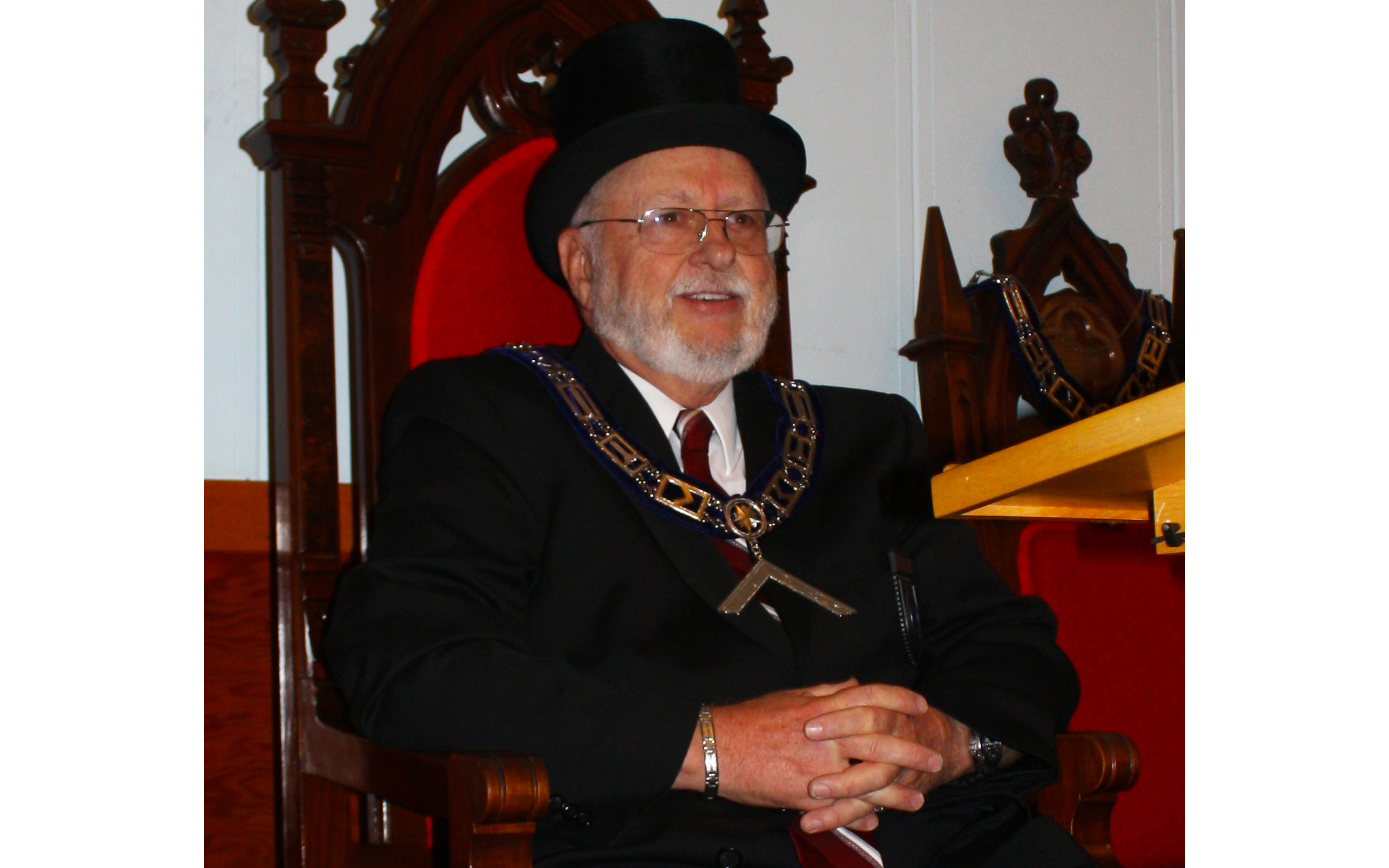
PRESQUE ISLE, Maine — The Freemasons of Trinity Lodge No. 130 celebrated their 150th anniversary by holding an open house Friday at their Presque Isle lodge on State Street.
The Presque Isle lodge was formed on July 28th, 1865. The individuals responsible for this initial organization are William S. Gilman, John F. Dyer, John T. Goss, Charles M. Spooner, Luman S. Judd, David H. Pike, Arther E. Wight, George H. Freeman, Andrew McRea, Sumner Whitney, Charles H. Church, Stephen Nason, Emery H. Orcutt, Joseph W. Nason, Charles F. A. Johnson, R. H. Perkins, Francis M. Everleth, Sherman Smith, Nathan Perry, Daniel O. Orcutt, and Ansel Packard. A charter was granted to the lodge on May 3rd, 1866 and on August 8th of the same year. The lodge was then instituted, dedicated, consecrated, and officers were installed, with George Curtis, Jr. taking the role of first Worshipful Master.
The Civil War had recently ended, and many of the first Masons were veterans of the conflict. Lodge members initially met in the attic of the McCleaves building. Eventually, they were granted permission to occupy the Town Hall. The Masons soon had their own Masonic Hall on State Street, thanks to a land donation from H. R. Downes. Freemasons occupied this building until it burned down on June 7th, 1909. The group briefly moved to the Greenlaw block, and, in October of 1941, they settled in their current hall.
Milton Smith, the current Worshipful Master of the Presque Isle lodge, was present during the open house. The Worshipful Master presides over rituals and ceremonies and sits on the east side of the lodge room. Chairs are arranged on all sides of the room and face the altar in the center.
“I’ve been a Mason for 47 years,” said Smith. “I’m a fourth generation and my son, who just left here a few months ago, is fifth generation. I have been able to meet people all over the county and the state. When meeting another Brother for the first time, it almost immediately feels like family. We all look out for one another like family, unless of course someone does something to dishonor the respect of the fraternity.”
The Worshipful Master spoke about the importance of symbolism to the Masons.
“A lot of our symbols have been passed down through the ages, long before Masonry even existed,” said Smith. “As Masons, our Tenets are Brotherly Love, Relief, and Truth.”
Smith described the significance of the Square and Compass, the most easily recognized symbol of the Masons.
“The compass is used to circumscribe our boundaries, whether it’s moral boundaries or our duties. The square is symbolic of squaring our actions, and the “G” stands for the initial of geometry. It also symbolizes God to us. Our ritual is designed so that, no matter what your faith, the Supreme Architect of the Universe is our Supreme Being.”
There exist several other bodies of Freemasonry, such as the Shrine, Eastern Star, and the Scottish Rite.
“These groups are autonomous unto themselves,” said Smith. “However, you have to be a member here before you can join some other groups such as the Shrine. There is no International Grand Lodge for Masons. There’s a Grand Lodge in every state, plus the District of Columbia. Every province in Canada has one and most small countries also have one. The Grand Lodges were formed by an act of the State’s Legislature, so when Maine became a state in 1820, our first Governor was also our first Grand Master.”
There are parallels between the Freemasons and religion. However, the group itself is not a religion.
“One of the prerequisites of becoming a Mason is that you have to believe in a Supreme Being, but it doesn’t have to be the God of any particular religion,” said Smith. “We have a King James version of the Bible on the altar, but we have also initiated Brothers of the Muslim faith. The only difference is that, for their obligation, we use the Koran instead of the Holy Bible. We teach a lot of lessons that you can find in the Bible,” said Smith, “such as ‘Honor thy Mother and Father’ and to not lie or cheat. Lessons in the Bible are similar to the lessons taught by the Masons.”
If one wanted to join the Masons, they would first need to know a member of the organization and request a recommendation, at which point they would have to fill out a brief questionnaire. The questions are straightforward, and include inquiries about the applicant’s address, their membership to other societies and organizations, and their work and school history.
Smith states that the organization is very open about its rituals and practices.
“There are no secrets here; the only private matters are related to business meetings. Things like certain members who do not pay their dues, or other financial issues. Beyond that, you can find out a lot about the Masons if you go on the Internet. Some of what you find online might not be accurate, but there’s a lot of good information out there, especially if you go to a Lodge website.”







